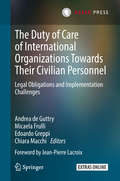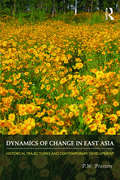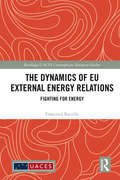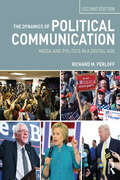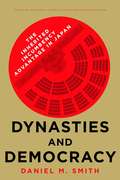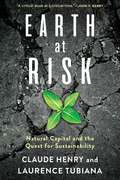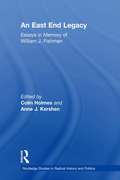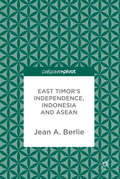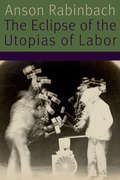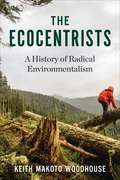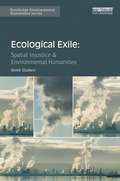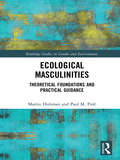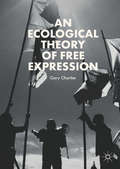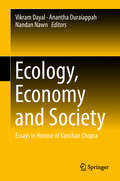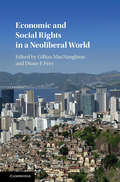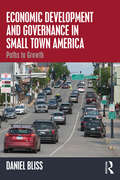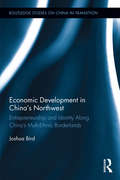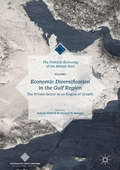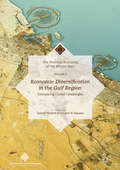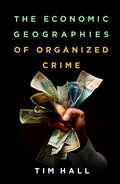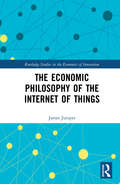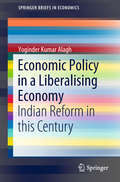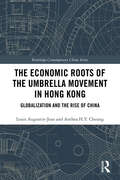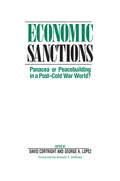- Table View
- List View
The Duty of Care of International Organizations Towards Their Civilian Personnel: Legal Obligations and Implementation Challenges
by Andrea De Guttry Micaela Frulli Edoardo Greppi Chiara MacchiThis book constitutes the first comprehensive publication on the duty of care of internationalorganizations towards their civilian personnel sent on missions and assignments outsideof their normal place of activity. While the work of the civilian personnel of internationalorganizations often carries an inherent risk, the regulations, policies and practices of theemployer can help to address and mitigate that risk.In this book, the specific content and scope of the duty of care under international law is clarifiedby conducting an unprecedented investigation into relevant jurisprudence and legal sources.Included is a critical assessment of the policies of selected international organizations while aset of guiding principles on the duty of care of international organizations is also presented.This publication fills a gap in the existing academic literature on the topic and is aimedparticularly at academics and practitioners interested in the legal implications of the deploymentof civilian personnel abroad by international organizations. This includes scholarsand university-level students specializing in international law, international human rightslaw, the law of international organizations, labour law, EU law, international administrativelaw and the UN system, and practitioners, such as lawyers and consultants, representing oradvising international organizations or their personnel on the legal aspects of deployment.The book is also aimed at the senior management of international organizations and at theirofficers in charge of recruitment, human resources, training and security, in that it clarifiestheir legal obligations and provides concrete examples of the policies various internationalorganizations have in place for the protection of civilian personnel. Current and prospectivecivilian personnel of international organizations should also find the book useful forclarifying their rights and duties.Andrea de Guttry is Full Professor at the Dirpolis Institute of the Sant’Anna School ofAdvanced Studies in Pisa, Micaela Frulli is Associate Professor at the Dipartimento di ScienzeGiuridiche (DSG), University of Florence, Edoardo Greppi is Full Professor at the Dipartimentodi Giurisprudenza, University of Turin, and Chiara Macchi is Research Fellow at theDirpolis Institute of the Sant’Anna School of Advanced Studies in Pisa.
Dynamics of Change in East Asia: Historical Trajectories and Contemporary Development
by P.W. PrestonOver the past forty years, East Asia has been radically transformed from a war-damaged sub-continent to a region of global pre-eminence. With new, highly developed scientific resources, great economic strengths, significant global trading links and equally powerful financial resources, East Asia is now one of the most dynamic regions in the global system. This book illuminates the historical development trajectory and contemporary circumstances of the countries of the region. Embracing a cross-disciplinary perspective, it summarises the history of the region and goes on to focus upon the rise of East Asia since the ruins of the Pacific War. Analysing the region’s basic strengths and the distinctive elite development strategies across the various countries, it also examines areas of domestic, intra-regional and international conflict. It covers the basic ground of political economy, society, culture and politics, whilst also taking care to locate the contemporary region in its own history and asking, what further change can be expected in the future? Providing an excellent introduction to the study of the region, this book is an important read for students and scholars of East Asian politics, history and development.
The Dynamics of EU External Energy Relations: Fighting for Energy (Routledge/UACES Contemporary European Studies)
by Francesca BatzellaThe Dynamics of EU External Energy Relations examines the behaviour of the European Commission in EU external energy relations paying particular attention to the dynamics existing between the Commission and the member states. It examines the Commission as a constrained policy-entrepreneur trying to expand its power, budget and competences, yet frustrated by member states protective of their national sovereignty. Analysing the Commission as agent and the member states as its principals, the book proposes a more nuanced examination of behaviour where the agent tries to satisfy its own interests but is still responsive to the preferences of the principals. Using a wide range of original primary and secondary data, the book argues that EU external energy relations reflect the dynamics of the relations between the Commission and the member states. This book will be of key interest to scholars and students of European Union studies and politics, EU energy and foreign policy, and more broadly to European politics and international relations.
The Dynamics of Political Communication: Media and Politics in a Digital Age
by Richard M. PerloffWhat impact do news and political advertising have on us? How do candidates use media to persuade us as voters? Are we informed adequately about political issues? Do twenty-first-century political communications measure up to democratic ideals? The Dynamics of Political Communication: Media and Politics in a Digital Age, Second Edition explores these issues and guides us through current political communication theories and beliefs by detailing the fluid landscape of political communication and offering us an engaging introduction to the field and a thorough tour of the discipline. Author Richard Perloff examines essential concepts in this arena, such as agenda-setting, agenda-building, framing, political socialization, and issues of bias that are part of campaign news. Designed to provide an understanding and appreciation of the principles involved in political communication along with methods of research and hypothesis-testing, each chapter includes materials that challenge us by encouraging reflection on controversial matters. Inside this Second Edition you’ll find: Expanded discussion of conceptual problems, communication complexities, and key issues in the field. New examples, concepts, and studies reflecting current political communication scholarship. The integration of technology throughout the text, reflecting its pervasive role in the political spectrum. Accompanied by an updated companion website with resources for students and instructors, The Dynamics of Political Communication prepares you to survey the political landscape with a more critical eye, and encourages a greater understanding of the challenges and occurrences presented in this constantly evolving field.
Dynasties and Democracy: The Inherited Incumbency Advantage in Japan (Studies of the Walter H. Shorenstein Asia-Pacific Research Center)
by Daniel M. SmithAlthough democracy is, in principle, the antithesis of dynastic rule, families with multiple members in elective office continue to be common around the world. In most democracies, the proportion of such "democratic dynasties" declines over time, and rarely exceeds ten percent of all legislators. Japan is a startling exception, with over a quarter of all legislators in recent years being dynastic. In Dynasties and Democracy, Daniel M. Smith sets out to explain when and why dynasties persist in democracies, and why their numbers are only now beginning to wane in Japan—questions that have long perplexed regional experts. Smith introduces a compelling comparative theory to explain variation in the presence of dynasties across democracies and political parties. Drawing on extensive legislator-level data from twelve democracies and detailed candidate-level data from Japan, he examines the inherited advantage that members of dynasties reap throughout their political careers—from candidate selection, to election, to promotion into cabinet. Smith shows how the nature and extent of this advantage, as well as its consequences for representation, vary significantly with the institutional context of electoral rules and features of party organization. His findings extend far beyond Japan, shedding light on the causes and consequences of dynastic politics for democracies around the world.
Earth at Risk: Natural Capital and the Quest for Sustainability
by Claude Henry Laurence TubianaWe are squandering our planet’s natural capital—its biodiversity, water and soil, and climate stability—at a blistering pace. Major changes must be made to steer our planet and people away from our current, doomed course. Though technology has been one of the drivers of the current trend of unsustainable development, it is also one of the essential tools for remedying it. Earth at Risk maps out the necessary transition to sustainability, detailing the innovations in science and technology, along with law, institutional design, and economics, that can and must be put to use to avert environmental catastrophe.Claude Henry and Laurence Tubiana begin with a measure of the costs of ecological damage—the erosion of biodiversity; air, water, and soil pollution; and the wide-reaching effects of climate change—and then consider the solutions that are either now available or close on the horizon and that may lead to a more sustainable global trajectory. What community-driven or market-based tools can be used to promote sustainable development? How can renewable energy and energy storage advances help us decrease our use of fossil fuels? How can we substitute agroecology for the damaging chemical methods of industrialized agriculture? Is international agreement on climate goals possible? Building on the experience of the most significant climate negotiation of the decade, Earth at Risk shows what a world organized along the principles of sustainability could look like, no matter how optimistic it may seem at the present moment. Though formidable obstacles remain to the realization of this significant transition, Henry and Tubiana present the case for collective initiatives and change that build momentum for implementation and action.
An East End Legacy: Essays in Memory of William J Fishman (Routledge Studies in Radical History and Politics)
by Colin Holmes and Anne J. KershenAn East End Legacy is a memorial volume for William J Fishman, whose seminal works on the East End of London in the late nineteenth century have served as a vital starting point for much of the later work on the various complex web of relations in that quarter of the capital. A variety of leading scholars utilise the insight of Fishman’s work to present a wide range of insights into the historical characters and events of the East End. The book’s themes include local politics; anti-alienism, anti-Semitism and war; and culture and society. In pursuing these topics, the volume examines in great depth the social, political, religious and cultural changes that have taken place in the area over the past 120 years, many of which remain both significant and relevant. In addition, it illustrates East London’s links with other parts of the world including Europe and America and those territories "beyond the oceans." This book will prove valuable reading for researchers and readers interested in Victorian and twentieth century British history, politics and culture.
East Timor's Independence, Indonesia and ASEAN
by Jean A. BerlieThis book explains how history and traditions have shaped Timorese politics, as well as the role that Indonesia and ASEAN play for the country's future . It tries to understand a complex political system in which both traditional laws and contemporary politics are integrated, and examines the effects of Portuguese colonization, Indonesian neo-colonialism, United Nations missions, and electoral democracy. The volume also addresses broader issues such as the politics of modernization, the question of development, and youth education. The possibilities presented by the new president, Luo-Olo, as well as the upcoming parliamentary elections, make this project a timely contribution that confirms the vibrancy of East Timor's democratic process and bi-party political system.
Easy Reading: The new novel from the Spanish literary sensation
by Cristina MoralesAn explosive and daring novel about bodies, sex, politics and disability by the prize-winning Spanish writer Cristina MoralesÁngela, Patricia, Marga and Nati are cousins living together in Barcelona. As women branded as disabled who share a state-subsidised flat, they must fight every day to retain their independence and find new and inventive ways - from dance to underground zines - to stop the state from managing every aspect of their lives.Funny and furious, Easy Reading is an indictment of the institutions that stigmatise individuals as disabled and of the language that marginalises them. It is also a portrait - visceral, vibrant, combative - of contemporary Barcelona. But, above all, Easy Reading is a feminist celebration of the body in all its forms, of female desire and queer sexuality, and of the transgressive and revolutionary power of language.Translated from the Spanish by Kevin Gerry Dunn
The Eclipse of the Utopias of Labor (Forms of Living)
by Anson RabinbachThe Eclipse of the Utopias of Labor traces the shift from the eighteenth-century concept of man as machine to the late twentieth-century notion of digital organisms. Step by step—from Jacques de Vaucanson and his Digesting Duck, through Karl Marx’s Capital, Hermann von Helmholtz’s social thermodynamics, Albert Speer’s Beauty of Labor program in Nazi Germany, and on to the post-Fordist workplace, Rabinbach shows how society, the body, and labor utopias dreamt up future societies and worked to bring them about. This masterful follow-up to The Human Motor, Rabinbach’s brilliant study of the European science of work, bridges intellectual history, labor history, and the history of the body. It shows the intellectual and policy reasons as to how a utopia of the body as motor won wide acceptance and moved beyond the “man as machine” model before tracing its steep decline after 1945—and along with it the eclipse of the great hopes that a more efficient workplace could provide the basis of a new, more socially satisfactory society.
The Ecocentrists: A History of Radical Environmentalism
by Keith Makoto WoodhouseDisenchanted with the mainstream environmental movement, a new, more radical kind of environmental activist emerged in the 1980s. Radical environmentalists used direct action, from blockades and tree-sits to industrial sabotage, to save a wild nature that they believed to be in a state of crisis. Questioning the premises of liberal humanism, they subscribed to an ecocentric philosophy that attributed as much value to nature as to people. Although critics dismissed them as marginal, radicals posed a vital question that mainstream groups too often ignored: Is environmentalism a matter of common sense or a fundamental critique of the modern world?In The Ecocentrists, Keith Makoto Woodhouse offers a nuanced history of radical environmental thought and action in the late-twentieth-century United States. Focusing especially on the group Earth First!, Woodhouse explores how radical environmentalism responded to both postwar affluence and a growing sense of physical limits. While radicals challenged the material and philosophical basis of industrial civilization, they glossed over the ways economic inequality and social difference defined people’s different relationships to the nonhuman world. Woodhouse discusses how such views increasingly set Earth First! at odds with movements focused on social justice and examines the implications of ecocentrism’s sweeping critique of human society for the future of environmental protection. A groundbreaking intellectual history of environmental politics in the United States, The Ecocentrists is a timely study that considers humanism and individualism in an environmental age and makes a case for skepticism and doubt in environmental thought.
Ecological Exile: Spatial Injustice and Environmental Humanities (Routledge Environmental Humanities)
by Derek GladwinEcological Exile explores how contemporary literature, film, and media culture confront ecological crises through perspectives of spatial justice – a facet of social justice that looks at unjust circumstances as a phenomenon of space. Growing instances of flooding, population displacement, and pollution suggest an urgent need to re-examine the ways social and geographical spaces are perceived and valued in the twentieth and twenty-first centuries. Maintaining that ecological crises are largely socially produced, Derek Gladwin considers how British and Irish literary and visual texts by Ian McEwan, Sarah Gavron, Eavan Boland, John McGrath, and China Miéville, among others, respond to and confront various spatial injustices resulting from fossil fuel production and the effects of climate change. This ambitious book offers a new spatial perspective in the environmental humanities by focusing on what the philosopher Glenn Albrecht has termed 'solastalgia' – a feeling of homesickness caused by environmental damage. The result of solastalgia is that people feel paradoxically ecologically exiled in the places they continue to live because of destructive environmental changes. Gladwin skilfully traces spatially produced instances of ecological injustice that literally and imaginatively abolish people’s sense of place (or place-home). By looking at two of the most pressing social and environmental concerns – oil and climate – Ecological Exile shows how literary and visual texts have documented spatially unjust effects of solastalgia. This interdisciplinary book will appeal to students, scholars, and professionals studying literary, film, and media texts that draw on environment and sustainability, cultural geography, energy cultures, climate change, and social justice.
Ecological Masculinities: Theoretical Foundations and Practical Guidance (Routledge Studies in Gender and Environments)
by Martin Hultman Paul M. PuléAround the globe, unfettered industrialisation has marched forth in unison with massive social inequities. Making matters worse, anthropogenic pressures on Earth’s living systems are causing alarming rates of thermal expansion, sea-level rise, biodiversity losses in terrestrial and aquatic ecosystems and a sixth mass extinction. As various disciplines have shown, rich white men in the Global North are the main (although not the only) perpetrators of this slow violence. This book demonstrates that industrial/breadwinner masculinities have come at terrible costs to the living planet and ecomodern masculinities have failed us as well, men included. This book is dedicated to a third and relationally focused pathway that the authors call ecological masculinities. Here, they explore ways that masculinities can advocate and embody broader, deeper and wider care for the global through to local (‘glocal’) commons. Ecological Masculinities works with the wisdoms of four main streams of influence that have come before us. They are: masculinities politics, deep ecology, ecological feminism and feminist care theory. The authors work with profeminist approaches to the conceptualisations and embodiments of modern Western masculinities. From there, they introduce masculinities that give ADAM-n for Earth, others and self, striving to create a more just and ecologically viable planet for all of life. This book is interdisciplinary. It is intended to reach (but is not restricted to) scholars exploring history, gender studies, material feminism, feminist care theory, ecological feminism, deep ecology, social ecology, environmental humanities, social sustainability, science and technology studies and philosophy.
An Ecological Theory of Free Expression
by Gary ChartierThis book advances a comprehensive moral defense of freedom of expression—one with implications for law and policy, but also for the choices of individuals and non-governmental institutions. Gary Chartier seeks to ground expressive freedom in mutually supportive concerns related to themes including property, autonomy, flourishing, and discovery, while seeking to tightly cabin the range of potential injuries that might trigger legal liability for expressive activity. Chartier argues suggestively for an understanding of expressive freedom as rooted and realized in a complex set of social ecosystems that merit protection on multiple grounds and applies it provocatively to a range of contemporary issues.
Ecology, Economy and Society: Essays in Honour of Kanchan Chopra
by Vikram Dayal Anantha Duraiappah Nandan NawnThis book deals with not just complex linkages, interactions and exchanges that form the relationship between the economic activities, human society and the ecosystems, but also the influences and impacts that each causes on the other. In recent times, this ecology–economy–society interface has received unprecedented attention within the broader environment–development discourse. The volume is in honour of Kanchan Chopra, one of the pioneers of research in these areas in India. She has recently been awarded the coveted Kenneth Boulding Award by the International Society for Ecological Economics (ISEE) and is the first Asian to receive it. The four sub-themes of the book reflect some of the important areas in the environment–development discourse — sustainability of development, institutions and environmental governance, environment and well-being, and ecosystem and conservation. Within each of the sub-themes, the policy and the practice as well as the macro and micro aspects are addressed. With contributions mainly from ecological economists and ecologists, the book’s approach is interdisciplinary, both in spirit and content, reflecting the honoree's work, which went not just beyond the mainstream ideology of economics, but also the way she listened to ideas from disciplines like ecology and sociology. The volume also includes two reflective essays on academic life and works of Kanchan Chopra. The book is a valuable resource for students, teachers, researchers, practitioners and policy makers in the areas of development economics, ecological economics, environmental economics and related disciplines such as conservation, development, ecology, economics, environment, governance, health, sociology and public policy.
Economic and Social Rights in a Neoliberal World
by Gillian MacNaughton Diane F. FreyThe rise of neoliberal policy and practice simultaneous to the growing recognition of economic and social rights presents a puzzle. Can the rights to food, water, health education, decent work, social security and the benefits of science prevail against market fundamentalism? Economic and Social Rights in a Neoliberal World is about the potential of these rights to contest the adverse impacts of neoliberal policy and practice on human wellbeing. Cutting across several lines of human rights literature, the chapters address norm development, court decision making, policymaking, advocacy, measurement and social mobilization. The analyses reveal that neoliberalism infiltrates management practices, changes international policy goals, flattens public school curriculum and distorts the outputs of UN human rights treaty bodies. Are economic and social rights successful in challenging neoliberalism, are they simply marginalized or are they co-opted and incorporated into neoliberal frameworks? This multidisciplinary work by a geographically diverse group of scholars and practitioners begins to address these questions.
Economic Development and Governance in Small Town America: Paths to Growth
by Daniel BlissWho governs? And why? How do they govern? These remain vital questions in the politics of our small cities and towns. In this new book, author Daniel Bliss takes issue with those who believe that small towns and cities are fatally vulnerable to the pressures of a global economy. Based on in-depth analyses of small town America, this book demonstrates how political agency can address and solve real problems affecting US towns, including capital flight, industrial closures, and job losses. Bliss illustrates how small localities exercise choices – such as nurturing local businesses and developing infrastructure rather than engaging in a "race to the bottom," heavily mortgaging tax revenues to attract large box retailers and small box call centers while passively watching more productive firms and better-paying jobs slip away. Taking careful account of comparative literature as well as variations in city governments, their planning agencies, and their relations with state authorities, this book explores the ways in which local politicians and public planning bodies can mobilize local constituencies to weather global challenges and common structural problems such as unfavorable demographics, skill shortages and out-migration. Economic Development and Governance in Small Town America holds out the promise of meaningful democratic change even in unfavorable political and economic circumstances.
Economic Development in China's Northwest: Entrepreneurship and identity along China’s multi-ethnic borderlands (Routledge Studies on China in Transition)
by Joshua BirdUnder the ethnic affairs management regime established by the People’s Republic of China, every Chinese citizen is classified within one of 56 state-recognised ‘nationalities’. Government policy assumes that these nationalities differ from one another primarily in their levels of economic development, and asserts that ethnic divisions and identities fade with the gradual achievement of economic and social equality. As a result, economic development policy in minority nationality areas has often constituted a replica of the model which has already proven successful in China’s Han-Chinese dominated east. Research conducted across five locations in China’s Northwest paints a far more complex picture, however. This book considers for the first time how identity informs the nature of economic participation among ethnic minority entrepreneurs in China’s remote Northwest. Through interviews with entrepreneurs from diverse backgrounds, including Tibetan, Han and Muslim Chinese, this book highlights how ethnic—and other—identities inform the nature of economic participation. Furthermore, it explores the broader implications of this de-facto economic segregation for China’s ongoing social harmony and political stability. Ultimately, this book demonstrates how economic participation, even when successful in achieving its economic outcomes, may actually serve to reinforce and strengthen minority national identity—perhaps even at the expense of national Chinese identity. This book will be useful for students and scholars of Chinese Studies, Ethnic Studies and Economics.
Economic Diversification in the Gulf Region, Volume I
by Ashraf Mishrif Yousuf Al BalushiThis volume focuses on the role of the private sector in diversifying the economics of Gulf countries in the post-petrodollar era, when fluctuating and declining oil prices are negatively impacting national expenditures. It explores current policies of countries in the Gulf Cooperation Council and their efforts to shift their economies away from heavy dependence on hydrocarbons. The structural changes will create favorable conditions for the private sector to flourish, shift production dependence from public to private sector, and allow for more efficient resource allocation. Such changes will also allow local banks to provide financial support to small and medium enterprises, boost entrepreneurship for job creation, and strengthen organizational structure and efficiency. This is the first volume in Economic Diversification in the Gulf Region.
Economic Diversification in the Gulf Region, Volume II
by Ashraf Mishrif Yousuf Al BalushiThis volume explores the challenges to diversification in Gulf countries, which can no longer rely on profits from hydrocarbons to fund national expenditures. It elaborates on the problem of weak institutions, lack of coordination between policy makers and executors, limited investment in research and development, and a workforce that is too poorly skilled to compete in the private sector. In addition to analyzing issues in areas such as education, labor, business, and trade, the contributors underscore the importance of using global best practices to overcome fundamental weaknesses in the Gulf Cooperative Council's economic structure that limit opportunities for economic diversification.This is the second volume in Economic Diversification in the Gulf Region.
The Economic Geographies of Organized Crime
by Tim HallIllicit and illegal markets play a substantial role in the global economy, yet have received little attention from economic geographers. This incisive, innovative book examines the spatial dimensions of hidden economic practices and asks how organized crime can be understood empirically and conceptually through a geographical lens. Going beyond stereotypes about gangsters, the book explores the role of spatially distant corporate, state, and criminal actors in such activities as trafficking and smuggling of drugs, people, and goods; counterfeiting; cybercrime; corruption; money laundering; financing of terrorist groups; and environmental crime. It suggests ways that a geographical analysis can contribute to improving policies and practices to curb organized crime at the regional, national, and global levels.
The Economic Philosophy of the Internet of Things (Routledge Studies in the Economics of Innovation)
by James JuniperTo properly understand the nature of the digital economy we need to investigate the phenomenon of a "ubiquitous computing system" (UCS). As defined by Robin Milner, this notion implies the following characteristics: (i) it will continually make decisions hitherto made by us; (ii) it will be vast, maybe 100 times today’s systems; (iii) it must continually adapt, on-line, to new requirements; and, (iv) individual UCSs will interact with one another. This book argues that neoclassical approaches to modelling economic behaviour based on optimal control by "representative-agents" are ill-suited to a world typified by concurrency, decentralized control, and interaction. To this end, it argues for the development of new, process-based approaches to analysis, modelling, and simulation. The book provides the context—both philosophical and mathematical—for the construction and application of new, rigorous, and meaningful analytical tools. In terms of social theory, it adopts a Post-Cognitivist approach, the elements of which include the nature philosophy of Schelling, Marx’s critique of political economy, Peircean Pragmatism, Whitehead’s process philosophy, and Merleau-Ponty’s phenomenology of the flesh, along with cognitive scientific notions of embodied cognition and neural Darwinism, as well as more questionable notions of artificial intelligence that are encompassed by the rubric of "perception-and-action-without-intelligence".
Economic Policy in a Liberalising Economy: Indian Reform In This Century (SpringerBriefs in Economics)
by Yoginder Kumar AlaghThis book follows up on the author’s popular previous volume on Indian development planning and policy, published under the UNU WIDER series in development economics. It first introduces an evaluation of the newly mandated policy body of India, National Institution for Transforming India (also called the NITI Aayog), which replaced the erstwhile Planning Commission. As per the government site, NITI Aayog is the premier policy ‘Think Tank’ of the Government of India, providing both directional and policy inputs. While designing strategic and long term policies and programmes for the Government of India, NITI Aayog also provides relevant technical advice to the Centre and States.The book goes on to critically describe and analyse the think tank’s policies in sectors like population, demographics and poverty; agriculture and industry; and infrastructure. Lastly, the concluding chapter discusses appropriate future policies. The approach is to analyse the policy stance of the present Government in India as stated in recent official documents and to see if it has any relationship with past plans in terms of concepts or program details. In addition to the policy makers, the book is a must have resource for students of development economics, particularly of India, and provides a critical account of policies for emerging economies.
The Economic Roots of the Umbrella Movement in Hong Kong: Globalization and the Rise of China (Routledge Contemporary China Series)
by Louis Augustin-Jean Anthea H.Y. CheungIn the autumn of 2014, thousands of people, young and educated in their majority, occupied the chief business district and seat of the government in Hong Kong. The protest, known as the Umbrella Movement, called for ‘genuine democracy’, as well as a fairer social and economic system. The book aims to provide a dynamic framework to explain why socioeconomic forces converged to produce such a situation. Examining increasing inequality, rising prices and stagnating incomes, it stresses the role of economic and social factors, as opposed to the domestic political and constitutional issues often assumed to be the root cause behind the protests. It first argues that globalization and the increasing influence of China’s economy in Hong Kong has weighted on salaries. Second, it shows that the oligopolistic nature of the local economy has generated rents, which have reinforced inequality. The book demonstrates that the younger generation, which is still finding its place in society, has been particularly affected by these phenomena, especially with social mobility at a low point. Offering a new approach to studying the Umbrella Movement, this book will appeal to students and scholars interested in Hong Kong's political landscape, as well Chinese politics more broadly.
Economic Sanctions: Panacea Or Peacebuilding In A Post-cold War World?
by David CortrightAs the challenge of preventing military conflict has become increasingly complex in the post-Cold War era, economic sanctions are being applied with growing frequency. Sanctions are also being used to enforce international law, to deter aggression and terrorism, to defend democracy and human rights, and to prevent nuclear proliferation. This study addresses questions about the utility, appropriateness and success or failure of sanctions, as well as their impact on the poor and innocent. Specific case studies, focusing on recent conflicts such as those in Haiti, Iraq, South Africa and the former Yugoslavia, demonstrate the principal aspects of economic sanctions.
